
not loud, but never silent.
Feminism In The Everyday
More than merch,
Less than a manifesto.
White Watermelon is where feminist thinking takes shape, in objects we wear, carry, light, or gift. Each piece holds space for something larger: a shift in thought, a soft resistance, a belief made tangible.I believe that expression doesn’t need to be loud to be felt. It can move through daily life quietly or boldly, gently or sharply, but it always leaves a trace.
思想无声,步履有迹
微光流转,自有锋芒
Thoughts, Loosely Held
These aren’t finished thoughts or final answers.
Just traces from a path I’ve been walking.
Sometimes we share the thought before the form, and that’s the point.
有话就说,有X就放
A personal reckoning with humor, gender, and what I mistook for confidence
成为女权主义者之前,我也喜欢开黄腔
On Naming, Power, and the Illusion of Gender Equality
从冠姓权看见权力结构的日常运作
Why is “like a boy” a compliment, but “like a girl” isn’t?
当“像女孩”成为夸奖,我们才算真正向前了一小步
How a car repair turned into my first real lesson in financial planning.
修车只是开始,真正学到的是理财
This was the moment I realized: trying hard doesn’t always guarantee clarity.
努力过后,结果可能仍不尽人意
A behind-the-scenes note on building this space, step by imperfect step.
没有标准答案,只能一步一步来,边做边改

Before I Called Myself a Feminist I Loved Making Dirty Jokes
-Aug 3rd, 2025-
Do you like dirty jokes? I used to.
As a girl, being the one who could “get” the sexual puns, who could say them out loud before anyone else, made me feel witty, fearless—almost one of the guys. I didn’t tell jokes in a stand-up way, but I was always quick to pick up on innuendos, sexual wordplay, or any vaguely inappropriate moment. I’d point it out, laugh, and feel like I had won something—a tiny moment of social power.Back then, being told I was “like a boy” felt like a compliment. It meant I was cool, assertive, not uptight. The more fluent I was in the language of sex jokes, the more accepted I felt in male-dominated circles. I mistook it for being sharp, for being confident. But in hindsight, I was simply fluent in the grammar of patriarchy.Every “blushing giggle” from a girl, every “you’re so bad” directed at me, gave me a sense of control. I thought I was subverting stereotypes. But I was actually participating in them—enjoying the privilege of speaking the unspeakable, because I was mimicking male-coded humor. What I took as "humor" was often just a safe zone temporarily granted to me by a system that still punished other women for less.Over time, I started noticing something: the girls I joked with didn’t always laugh. Some smiled stiffly, some avoided eye contact, some stayed quiet. I began to see it not as camaraderie, but compliance. They weren’t playing along—they were tolerating me. And that realization changed everything. I started asking myself: Who gets to be funny, and who gets labeled vulgar? Who gets praised for being bold, and who gets shamed for being inappropriate? Humor is not neutral—it mirrors power. If your joke makes someone feel trapped, is it really a joke? If your “wit” relies on silence or discomfort, who is it serving?So when I saw the Maskpark incident unfold—when countless men filmed women in public under the guise of “content” and traded footage like trophies—I didn’t just ask “how could they?”
I asked: “Why did they feel entitled to?”It wasn’t about sex. It was about recognition—by other men. It wasn’t private arousal—it was public initiation. A performance of belonging. An informal pledge: “I’m one of you.” And in that moment, I realized: the dirty jokes I once cracked weren’t far from this. They were rooted in the same logic—just softer, subtler. I wasn’t outside the system. I was complicit. When I understood that, I knew what I had to do. I had to amputate my phantom limb.The phantom limb is the imaginary extension of authority I once borrowed from patriarchal language. It gave me the illusion of power.
But it was never mine.
Cutting it off wasn’t painful. It was freeing. I finally stopped being someone I didn’t even like.
成为女权主义者之前
我也喜欢开黄腔
你爱讲黄段子吗?我以前挺爱的。对,作为一名女生,讲黄段子,开“性玩笑”,很长时间以来我都认为这是我幽默的体现。当然不是段子手那种‘讲’,而是一种抓住机会开黄腔、指出性谐音、制造笑点的习惯。我讲得不多,但我“懂得快”,也是为了得到更多“像男生”这类的表扬,为了更“合群”,能听懂“性暗示”就等于有资格参与男性话语场。因为“像男生”在年轻的我看来是一个正面的词,代表好强、不扭捏、不矫情。讲黄段子好像也跟这个有关:我懂、我敢说、我不害羞,这样好像就更“像男孩”,更合群,更懂男人的语言,也更“聪明”。我把“说出来”当作了一种小型社交胜利,一种语感快、控场的表现方式。虽然这是对“传统女性形象”的一种逃离,但路径是走向了父权话语那边。
而女生给我的娇羞或者“笑骂”的反应也给我了极大的满足感。首先就是权力的反馈感,是我“制造”了她的反应。我似乎获得了一种掌控情境的反馈,这种满足感像是一种低级的支配感,是她在反应我主导的场面。第二点则是,性别权力结构内的奖赏感。我不再是那个被开玩笑的人,而我是能讲的人。传统的社会规则是:
男人讲黄段子=幽默;
女人讲黄段子 = 放荡;
女人听了皱眉 = 太敏感;
女人听了笑 = 她懂行。
女生大多是这些玩笑的“对象”,而我是“讲的人”。我站在了通常只有男性才能站的那一边,我在使用一种“男性语法”,却仍被包容、称赞、甚至“表扬你挺会说”。这会让我产生一种超越性别限制的错觉——我不是那个只能听的人,我是能讲的人;我甚至讲得比男的还带劲。这是在男权语境下获得的奖励,一种偷偷分到的“权力碎屑”。第三则是这是一种情绪共谋的错觉。讲性笑话是一种“轻微越轨”的行为。当对方听完没走,甚至“笑骂”了一句,这就构成了一种微妙的“情绪共谋”。我会觉得:她也懂;她没有生气;她骂我是“互动”,不是“指责”;她在跟我一起打破规矩。这其实是一种被社会语境训练出的幻觉,尤其当我处在年轻、压抑、或者极度需要被关注的时候,这种“我们在一起越界”的假象,会令人上瘾。本质上,这是把他人的被动容忍误读成主动参与,我并非有意,但确实获得了满足。当后来我开始有意识的观察被开玩笑者的反应的时候,那些曾经我认为是“娇羞”“笑骂”“互动”的反应,忽然变得不一样了。她们笑得有点僵,说话卡顿,甚至没再接话,我才意识到,那不是在跟我嬉笑打骂,而是在试图结束这段对话,她们也许不是在“玩”,而是在“应付”。我开始明白,有些笑,是被迫的,被气氛逼的,被社交压力逼的,也是被我逼的。我的转变不是因为我不敢讲了,而是因为我终于看见她们没得选了。曾经讲段子给我带来一种错觉:我比其他女生更“懂行”,我站在了“能说能笑”的那一边。但我渐渐意识到,这不过是男权系统给我的一点“虚假反馈”,我配合得自然,就显得不那么尴尬。而我似乎在“对女性身体评头论足”的体系中找到了发言权,我在“羞辱别人”中逃避自己作为女性的脆弱位置,在语言上、心理上,更认同父权视角中的“谁才配说话”这套秩序。曾经我觉得“我能说”,是一个进步,是一种能力,是一种聪明。后来逐渐明白,我是拿别人没法反驳的沉默来填满段子的缝隙。这很明显是我早期相对隐性的“厌女”表现。我后来反复想的一个问题是:幽默的主导权到底掌握在谁手里?谁说出来的话是“幽默”,谁说出来就是“放荡”?谁开黄腔被说“真会说”,谁说了点性相关的词就被说“太脏了”?这些反应不是随机的,而是一种不自觉的权力投射。某些人之所以能开黄腔,是因为他们不需要为别人的羞耻负责。幽默从来都不是一个平等的场域。你一旦不笑,就是你不合群,就是你太较真,就是你开不起玩笑。所以当我意识到自己曾经掌握过这种幽默感,甚至有人因此觉得我“挺厉害”,我开始反过来问自己:我当时拥有的是“幽默”,还是我恰好踩在了那块被临时授权的话语场中。
所以当我看到 Maskpark事件的时候,我想到的不是“他们怎么敢”,而是“他们为什么觉得可以”。那不是某个人的性幻想,也不只是偷窥癖的问题,而是一种“我要被看见”的冲动。不是被女人看见,而是被男人看见。你发了图,我也发;你说她骚,我也说。这不是孤独的自慰,而是集体性的入门仪式,是投名状,是“自己人”的通关密码。当大家都在这样说、这样笑、这样交换“素材”的时候,脏的就不是欲望,而是整个对话的结构。这不止是在发泄,更是在站队。而我曾经用来制造笑声的那点点性暗示语言,其实和这些暴力共享着同一套语法系统,只是温和一点。自从我意识到自己有精神幻肢以后,我便做了自我阉割。切掉以后,舒服多了,也就变得不那么“讨厌”了。
It’s Just a Last Name? Think Again.
-July 26th, 2025-
Not long ago, I joined a YouTube livestream where the host was discussing a disturbing case in Nanjing that had recently gone viral. On the surface, the case didn’t directly involve women, but as the host pointed out, it managed to mock them anyway. It was yet another example of how easily women become the butt of the joke, even in their absence, and how far we still are from genuine gender equality.In the comments, a man pushed back. He claimed that things have improved dramatically: in his local government office, for example, there are now many female civil servants. Women, he said, are everywhere, in the courts, the prosecutor’s office, and beyond. So I asked him: “And how many of them are in leadership positions?” He paused and admitted, “Mostly men.” Exactly.Whenever people try to use surface-level statistics to refute structural inequality, they often end up revealing the inequality more clearly. Women are allowed to enter the system, to participate, to contribute, but they’re rarely allowed to lead. Presence is permitted. Power is not. To bring the issue into sharper focus, I asked another question:
“Would you be willing to let your future child take the mother’s last name?”
He hesitated, then said, “It’s negotiable.” It sounded reasonable. But those words—“It’s negotiable”—say everything.
Why does a woman need to negotiate for something that should be a basic right?
Why is the man positioned as the one to agree—or not?
And let’s be honest: how often does “negotiable” turn into “no”? The most common answer: “My parents wouldn’t agree.” And why wouldn’t they agree? Because of an age-old logic deeply rooted in patriarchy: the child belongs to our family. The wife joins our household. The name must reflect that ownership. It’s not about tradition. It’s about control. And when a woman pushes back—when she dares to raise the issue—she’s met with resistance not just from her in-laws, but often from her own family. She’s told she’s being difficult, unreasonable, selfish. All for questioning a system that has never asked for her opinion in the first place. This isn’t just a personal dilemma. It’s a social one. A cultural one. A structural one. It’s a virus of the everyday—passed down silently from generation to generation. A set of unwritten rules that shape how we marry, raise children, make decisions. It operates quietly, invisibly. And that’s exactly what makes it powerful.And yet, what frustrates me most is not the existence of inequality—but the widespread denial of it.
How is it that in 2025, the reality of gender inequality still needs to be proven, over and over again?
How is something so obvious still treated as controversial? When I tried to unpack this further during the livestream, another man chimed in: “This isn’t worth discussing. You’re making a big deal out of nothing.” But these so-called “small things” are never just small. They are the foundations on which everything else is built. When something becomes too common, it becomes invisible. And when women start pointing it out, we’re asked: “What more do you want?” Isn’t that question, in itself, proof that the problem exists?Meanwhile, the academic world has moved far ahead—into Decolonial Feminism, Cyberfeminism, Feminist Political Economy of Care, Feminist Epistemology—while we’re still stuck debating who gets to name a child. That gap isn’t just embarrassing. It’s telling. It reveals the real voice behind the phrase “we’ve already given you enough rights”:
You can work, but don’t get ambitious.
You can speak, but don’t challenge.
You can be present, but don’t expect to lead.
This is not equality. This is managed inclusion. A performance of fairness where the script remains unchanged. That’s why naming matters. Not because it’s about syllables or heritage. But because it exposes who has the power to decide.Naming is never just about names. It’s about authorship, about who gets to write the story. So no, this isn’t a small thing. It’s not a private matter. It’s the foundation of how power operates in society.
And because it’s so foundational, it needs to be said again and again. Because it’s so ordinary, it’s often ignored. But gender inequality isn’t invisible. It’s just been rendered conveniently unseen.
冠姓权的权力隐喻
最近在一场 YouTube 直播中,我参与了一场关于“冠姓权”的简短对话。起因是主播在讨论南京“红姐事件”时提到:即使这个事件表面上没有女性参与,但它仍在消遣女性,反映出女性在当今社会中的地位依然低下。就在这时,一位男观众留言反驳,说他认为如今女性的地位已经有了极大提升,比如他所在区县的公务员系统中,女性员工比例很高,法院和检察院也有不少女性。我顺势问他:“那领导层呢?”他说:“那倒是男性居多。”这不正说明了问题吗?当人们试图用“看起来平等”的表象来否定结构性不平等时,真正的权力分配反而暴露得更清楚:女性可以进入系统,却很难掌握话语权。她们被允许在场,却仍难以真正掌握权力。工作、奉献、承担责任可以,但晋升、决策、改变结构?还轮不到你。为了让他理解这种不平等的根源,我抛出了一个简单又直接的问题:“你愿意让你未来的孩子随母姓吗?”他沉默了一下,说:“这个可以商量。”听上去挺讲道理的,但问题恰恰就在“可以商量”这四个字里。为什么女性必须提出申请,而不是直接拥有?为什么男方是“被商量的那一方”?为什么“商量”之后,大多数结果仍然是“不同意”?那这个“不同意”,背后的理由又是什么?答案往往可能是:“家长不同意。”而家长为什么不同意?还不就是那一整套根植在父权制文化中的“传宗接代”逻辑——孩子和媳妇是“我们家”的人,必须姓“我们家”的姓。生了孩子就要落户进“我们家”,这是一种彻底的所有权思维。更讽刺的是,当女性提出不同意见时,不仅男方家长会认为“孩子当然要随父姓。”,甚至连她自己的家长也可能觉得她“不懂事”“挑事”“自私”。这种根深蒂固的家庭观念,不只是个人选择的问题,而是渗透进社会的每一根毛细血管,成了一种系统性的文化病毒。它像默认规则一样存在于每一代人的生活、婚姻、对话和育儿观中,几乎无需被说出口就能发挥作用。病毒已经扩散到如此地步,就更需要正确的诊断与治疗。这不是情绪问题,不是“敏感”,而是明显的结构性问题。而这也是我始终无法理解的:为什么“性别不平等”如此明显的事实,在中国仍需不断申诉、不断言说、不断解释?为什么这个最基本的事实,就如此难以达成共识?更有甚者,当我进一步展开讨论时,另一位男观众表示:“这种事情不值得讨论,太小题大做。”恰恰是这些被故意忽视的基础议题,才最具基础性与普遍性。当一件事太习以为常,就会被社会默认合理;而当女性质疑这种“合理性”时,又会被质问“你们还想怎样”?这不是“不平等”,还能是什么?讽刺的是,在全球学界,女性主义研究已经推进到许多前沿领域:
去殖女性主义(Decolonial Feminism)探讨殖民历史与性别压迫的交叉
科技女性主义(Cyberfeminism)分析技术如何复制或重塑性别权力结构
照护的政治经济学(Feminist Political Economy of Care)批判谁在照顾,谁在被照顾
女性主义认识论(Feminist Epistemology)质疑知识生产的性别视角偏见
等等。如此复杂广泛,而我们现在还在原地踏步,连最基本的跟谁姓还得说半天!更令人心寒的是,那些质问“你们还想怎样”的声音,其实来自对权力的默认占有,这种态度背后是根深蒂固的父权结构:
“你可以有工作,但别太有野心。”
“你可以发声,但别太激进。”
“你可以在场,但别想主导。”
这种“给你一点就够了”的语气,本质上就是权力在说话,是上位者对下位者居高临下的施舍。冠姓权之所以重要,不是因为它决定了姓什么,而是因为它映射出社会默认谁有权决定。它不是小事,它是根源。是判断一个社会是否真正实现性别平等的起点。也正因为它太根本,才需要一遍遍被讲出来;正因为它太日常,才更容易被选择性忽视。性别不平等从来不是“我们看不到”,而是太多人选择视而不见。
When “Like a Girl” Becomes a Compliment
-July 22th, 2025-
If I told a little girl, “You’re such a girl,” would she smile? And if I said the same to a little boy, “You’re like a girl”, how would he feel? When I was around ten, I would’ve taken it as a criticism. A boy, probably as an insult.Growing up, my dad used to praise me by saying I was “like a boy.”
He’d proudly tell people he was “raising me like a son.” I was proud of it too. It made me feel special, unlike other girls. But as I got older, I started questioning the meaning behind that compliment. Was I being praised because I wasn’t “too feminine”? Did being “like a girl” mean being weak, or not beautiful? Was “strength” somehow the opposite of “beauty”? To earn more praise, I began to distance myself from the idea of being a girl. Over time, I internalized a subtle kind of misogyny. But in a world that rewards masculinity and devalues femininity, who hasn’t learned to do the same?After all, these compliments and insults are not just about personality, they reflect a deep social structure.
“Like a boy” is seen as a good thing because it implies strength, logic, capability.
“Like a girl,” on the other hand, often implies weakness, emotion, passivity.
Words like “gentle” and “soft” rarely sound like compliments. But why shouldn’t girls be strong and capable too? Traits, whether viewed as strengths or flaws, shouldn’t belong to any one gender.I remember talking to a college-aged American boy who worked part-time at my shop. We were talking about a female coworker, and he said, “She’s stronger than me.” I was stunned. “Wait, are you serious?” I asked. “Is that a compliment or sarcasm?” I couldn’t imagine anyone calling a girl “strong” and meaning it in a good way. Where I came from, “strong” evoked images of someone bulky, unfeminine—something a woman would not want to be called. I even warned him, half-joking: “If you ever date a Chinese girl, don’t say she’s strong. Say she’s chubby or ‘a little round’—just not strong!” To me, “strong” meant big arms, thick waist, no elegance. He laughed and said, “In America, strong is totally a compliment. Girls love hearing that.” The next day, I asked the girl he was talking about how she felt when people called her strong. She lit up. “I like it!” she said, and even showed me pictures of her lifting weights at the gym. Only then did I start to understand: Here, a girl could embrace strength without giving up her femininity. And more importantly, a boy could admire a strong girl without feeling ashamed.One day, I hope parents can proudly say to their sons: “You’re just like a girl.” And more than anything, I hope that someday, “girl” and “boy” are no longer compliments or insults, just identities.
当“像女孩”成为夸奖,我们才算真正向前了一小步
当我对这一个女孩子说:”你真像女孩一样“,这个女孩子会高兴吗?那如果我对一个男孩说“你真是像个女孩子”,这个男孩又会怎么想呢?如果我是那个小女孩,在我10岁左右,我一定会认为这是在批评我。而男孩呢?大概会觉得是在骂他吧。小时候,我爸总表扬我“像男孩”,还常说拿我当儿子养。我曾一度洋洋自得,觉得自己与众不同。长大后慢慢觉出这里的味不对,难道我之所以被表扬,我之所以“好”是因为我不像女生?或者说我是缺乏“女性气质”,我是不美的不漂亮的,而“强”和“漂亮”是矛盾的。于是我为了得到更多的“表扬”,渐渐变得厌女。可在这样的社会规训中长大,谁还能不厌女呢?所以说,一个性别对另一个性别的拉踩和称赞,往往都隐藏着社会共识与权力结构。“像男孩”之所以是褒义词,因为这背后暗含的就是所谓的男性特质:强、理性、能干;而“像女孩”则是:柔弱、感性、温顺。“柔弱”和“温顺”,哪个听起来都不像好词。而女生却为什么不能是“强”和“能干”的呢?无论是优势还是劣势的形容词,都不该被性别所绑架。这让我想到几年前,那是我来美国已经有段时日了,有天和一个在我店里打工的,还在念大学的本地男孩聊天,说起店里另一个女同事,他说,他感觉那个女孩比他Strong。我一下就愣住了,我说啊?你真是这么认为吗?你是在说好话还是说反话?你怎么能形容一个女孩strong呢?说一个女孩“壮”诶!这还能是什么好词吗?然后我还给他解释了一堆,说什么如果你真想交中国女朋友,千万别说她“壮”,说她chubby说她胖胖的都行,可是“壮”,五大三粗膀大腰圆这种传统贬义词立马印在我眼前。然后他很平常的说,在美国,strong可是超级正面的词,女孩们都喜欢别人说她strong。隔天,我将信将疑的问那个女孩,如果别人说你“strong”,你的感受如何?她很开心,并且表示她确实比较strong还给我看她平时健身的照片什么的。后来我反复想了一下才明白,这背后的逻辑是,女孩在保留自己女性特质的情况下,是可以承认自己具有“男性气质”的。而这背后最关键的,男孩是可以不“strong”的,不“strong”的男孩也是可以坦然承认这一点的,看见比自己“strong”的女孩更是可以称赞仰慕的。我希望有一天,家长们可以夸自己家的男孩“像女孩”,而我更希望,无论女或男,都不再是形容词。
What My Broken AC Taught Me About Money
-July 20th, 2025-
My car’s AC broke—AGAIN—right in the middle of a heatwave. I visited three repair shops, hoping to find the right balance of price and trust. In the end, I returned to a place I had visited over a year ago—the same one that once quoted me $2800. Back then, I thought it was too much. I found another shop, paid $2000, and hoped for the best. This time, after more inspections and another round of repairs, I spent about $1500 more. In total, I paid more than I would have if I’d just gone with the original quote. It was a frustrating, humbling reminder: some costs don’t go away just because we avoid them. Sometimes, we end up paying more—just slowly, and with extra stress.That realization nudged something deeper. I’ve always thought I was being careful with money—saving where I could, avoiding debt, thinking twice before spending. But maybe that wasn’t the same as being financially prepared. For most of my life, “investing” felt like a world I didn’t belong to. I assumed it meant stocks, charts, and risk—something for experts or people with money to spare. I stuck to saving and hoped that was enough. But this unexpected expense finally pushed me to face the basics. I started looking into things I’d heard of but never understood: CDs, T-Bills, HYSA, Roth IRA. I realized financial tools aren’t just for rich people or risk-takers—they’re also for people like me, who just want to build stability from where we are.I’m starting slow, on purpose. I’m choosing safer options not because I’m afraid, but because I want to learn through action. One small step at a time.This whole thing wasn’t just about fixing a car. It was about shifting the way I deal with uncertainty. I used to think avoiding complexity would keep me safe. Now I see that learning—even slowly—is the only real safety net I have.Some lessons cost money. Others cost time. This one cost both. But it also gave me something worth holding onto: the courage to stop avoiding, and the clarity to begin.
起初只是车载空调又坏了,正值酷暑,我辗转三家修理行,最后还是回到了那家一年前因为报价太高而放弃的店。今年前后又花了1500美元,加上去年的2000元,结果比当初拒绝的2800还贵。那一刻我才明白,有些钱不是不花就能省下来的,推迟不等于避免,很多时候反而要付出更大的代价。也是从这里开始,我终于意识到自己对“钱的知识”其实远远不够。借着这次突如其来的支出,我开始真正接触理财。在 ChatGPT 的帮助下,我慢慢理解了几个曾经只听过名字的词:CD(定期存款)、HYSA(高收益储蓄账户)、T-Bill(国库券)、Roth IRA(罗斯退休账户)……原来理财并不只是炒股和风险,它也可以是稳定、有节奏的积累。我选择从保守投资开始,在行动中学习,在学习中积累信心。我发现:并不是所有问题都需要立刻解决,但我们总可以选择开始理解。比起一味“省钱”,我更希望自己能在未来的每一个决定里,多一点清醒与准备。
Things Break, Even When We Try
-July 10th, 2025-
My car’s A/C just stopped working again. It was fully repaired last year, the evaporator core had to be replaced, and it wasn’t cheap. I did my homework, compared 3 shops, and picked the one that felt the most professional. They assured me the compressor was fine. I believed them.And for a while, the cold air came back. Not perfect—hot days still pushed it to its limit—but it worked. Until two nights ago, when it suddenly stopped cooling altogether.I brought the car back to the same shop. They haven’t finished the diagnosis yet, but it’s likely the compressor. It always was the other thing I was worried about.The frustrating part isn’t just the cost, or the inconvenience. It’s that I did everything I thought I was supposed to do. I made the effort. I took it seriously. And things still broke.Maybe the compressor really didn’t show signs of failure last year. Maybe they missed it. Maybe they knew and figured it was easier to get me to fix the cheaper part first. I don’t know. And maybe it doesn’t matter.Because even if I had known both the evaporator and compressor were on their last legs, maybe I would’ve sold the car then. But that was a year ago. Now the car is still with me, and whether I keep it or let it go is another story entirely.The truth is: we don’t always know what the “better” decision is. We just know what we knew at the time, and what we chose based on that. Sometimes things turn out okay. Sometimes they don’t. Most times, they’re just... uncertain.So I wait for tomorrow’s verdict. And I prepare to meet it with as much steadiness as I can manage. Fix it or sell it, either way, the world moves forward. So do I.
我的车空调又坏了。去年才刚修过,当时被告知压缩机没问题,我也信了。这一年里她勉强撑着,直到前几天突然彻底不制冷了。车又送回原来的修理厂,还在等结果。最让人沮丧的不是修车本身,而是明明已经做了功课,做了决定,做了努力,事情还是没能按期望发展。也许是判断失误,也许是本就无从判断。人生很多决定都是如此:当下做了选择,一年后再回头看,好坏也说不清了。只能继续等,继续走。
Almost There: Notes from the Building Process
-July 4th, 2025-
This site has been a long time coming, and a learning curve all the way through.I started working on it in mid-June, with only a vague idea of how I wanted things to look and feel, and little knowledge of how Carrd actually works. Along the way, I’ve wrestled with layout constraints, struggled with spacing, bumped into unexpected limitations, and gone back and forth (more times than I can count) on colors, fonts, image sizes, and wording.Some features just couldn’t be implemented the way I imagined. Others had to be rebuilt from scratch. But gradually, piece by piece, it came together.By now, I’ve completed the homepage, the About page, five sets of themed product pages, a gallery of photo work, and a structure for story archives. I’ve also reactivated 20 Etsy listings and linked them back to this site. What’s left is just fine-tuning: visuals, animations, font choices.Fittingly, it’s July 4th today, a day that marks independence, beginnings, and declarations. This may not be a revolution, but it is a kind of becoming.It’s not perfect—and maybe never will be—but the structure feels solid now. The process was messy, but the progress is real. And that’s enough for now.This marks my first little entry here. I expect there’ll be more.
这个网站大约从 6 月中旬开始动工,一路走来确实不算轻松。从一开始对 Carrd 的功能一无所知,到逐步摸索出结构、调试排版、试错配色、推敲每一句文案,中间遇到的阻力不计其数。有些功能无法实现,只能重新构思;有些细节调了又调,仍旧不满意。但庆幸的是,没有停下。到现在,首页、About、五组主题产品页、摄影作品展示、故事归档结构都已初步完成,还重新整理并链接了 Etsy 的二十个商品列表。今天是 7 月 4 日,对这个网站来说,也是一个值得纪念的日子,虽然还有收尾工作,但也可以被人看见了。希望这是一个半新的开始。
Things You Can Wear
These are designs drawn from things I felt.
They reflect things I care about.
If one feels right to you, I’d be glad to share it.
你看见的,也正是我想表达的
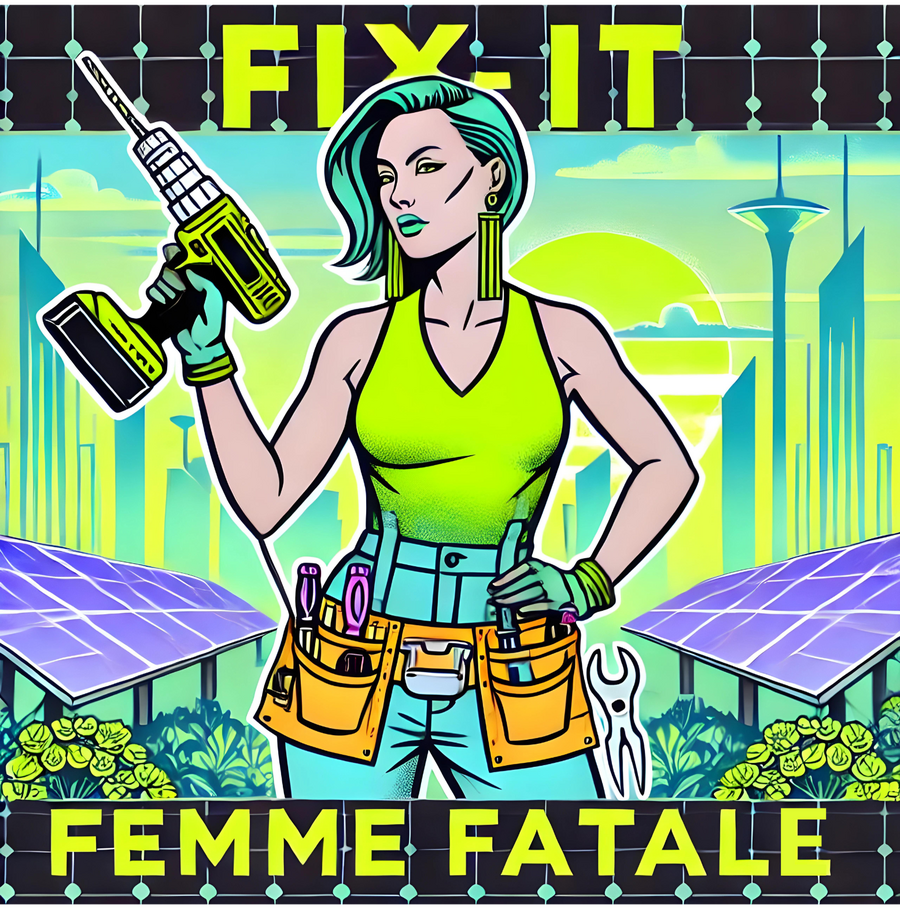
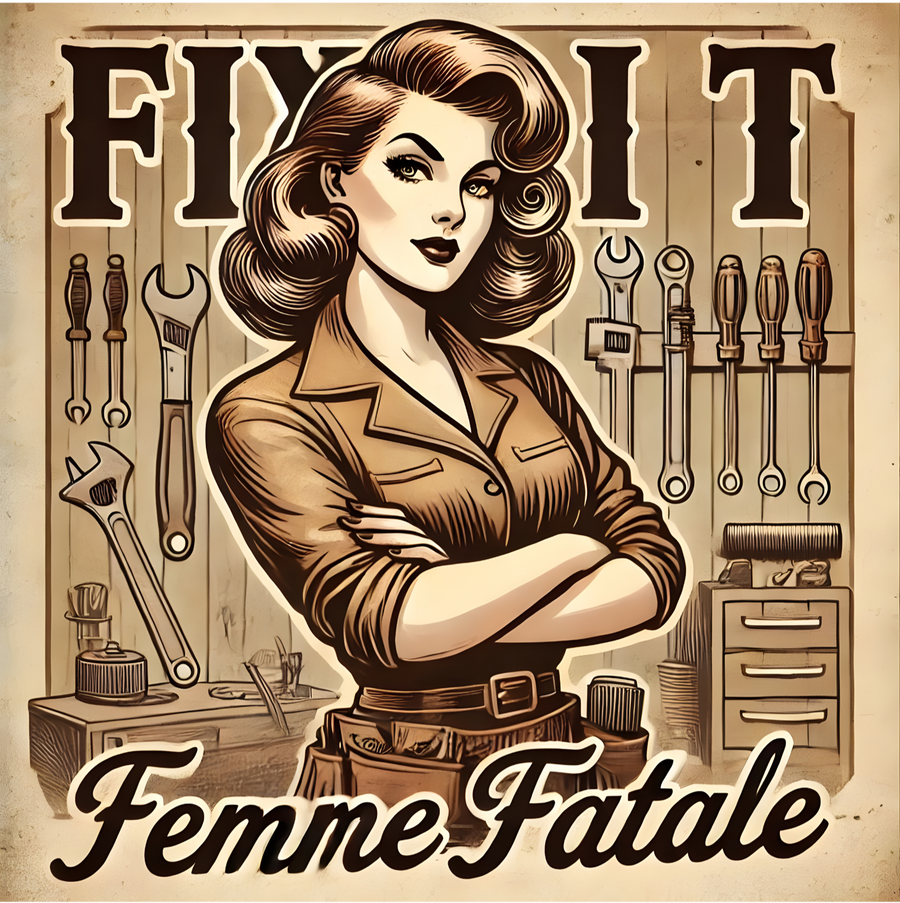
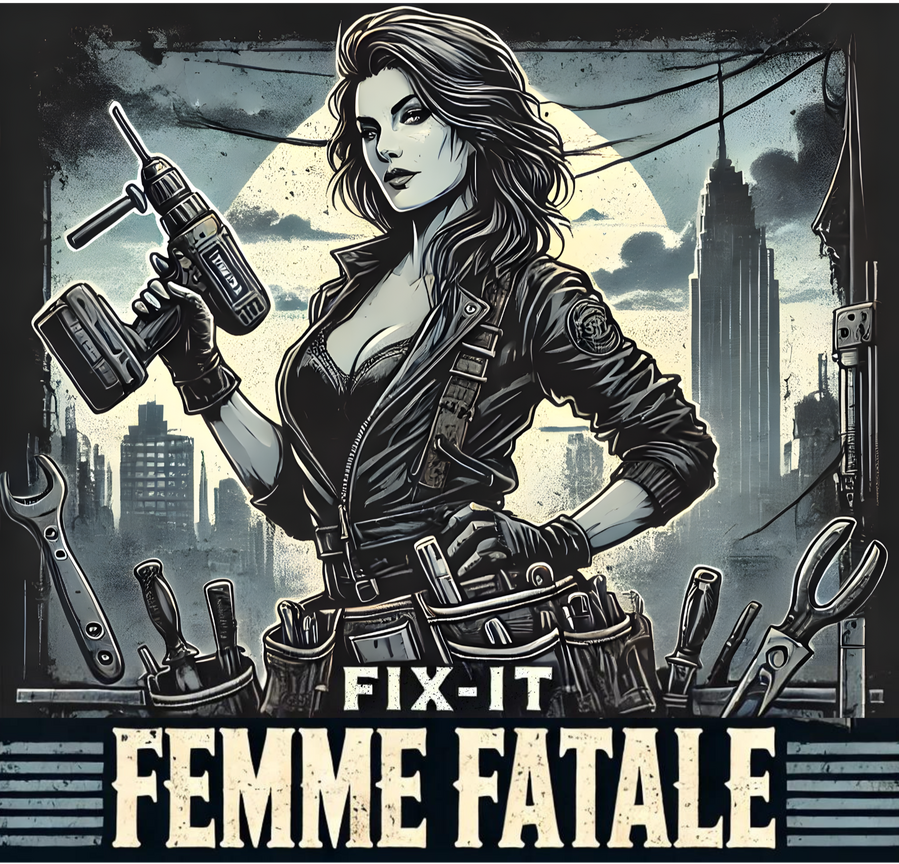
Fix It Femme Fatale
These designs were created using AI tools, not as shortcuts, but as a way in.
I’ve always loved design, and AI gave me a way to finally try.Each of these women has tools, and all the confidence that comes with it.
Made for the ones who build, fix, and take up space where few expect them to.
AI 工具是我通往表达的入口


Tool Queens, Power On
These were made for the women who do it themselves.
Who fix, spark, build, rewire, and look damn good doing it.
Designs full of power, grit, and just enough pink to make ‘em blink.If you know a woman like that, or are one, you know the vibe.
工具不止于修理,也能点燃表达

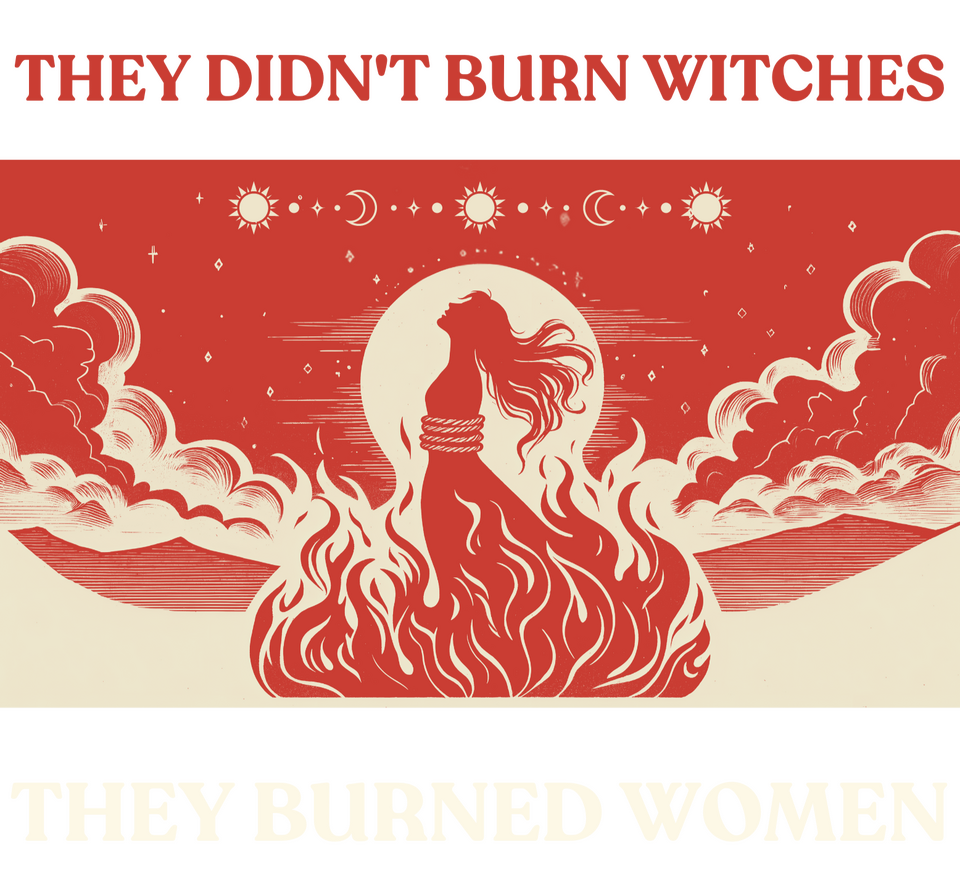
They Didn’t Burn Witches
These were my first designs made with nothing held back.
They’re bold, because the truth has always been. They remind me that expression doesn’t have to ask permission.If you’ve ever felt the fire, you’ll understand.
不被纪念的历史,也曾照亮黑夜
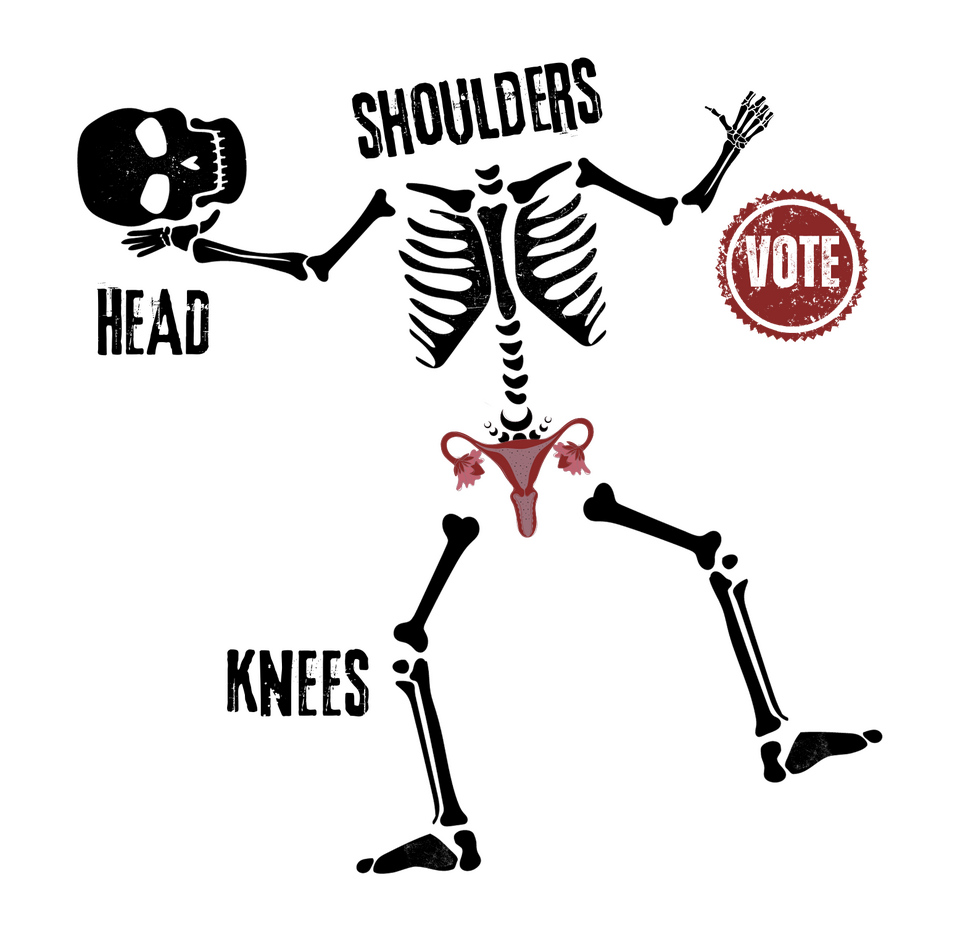
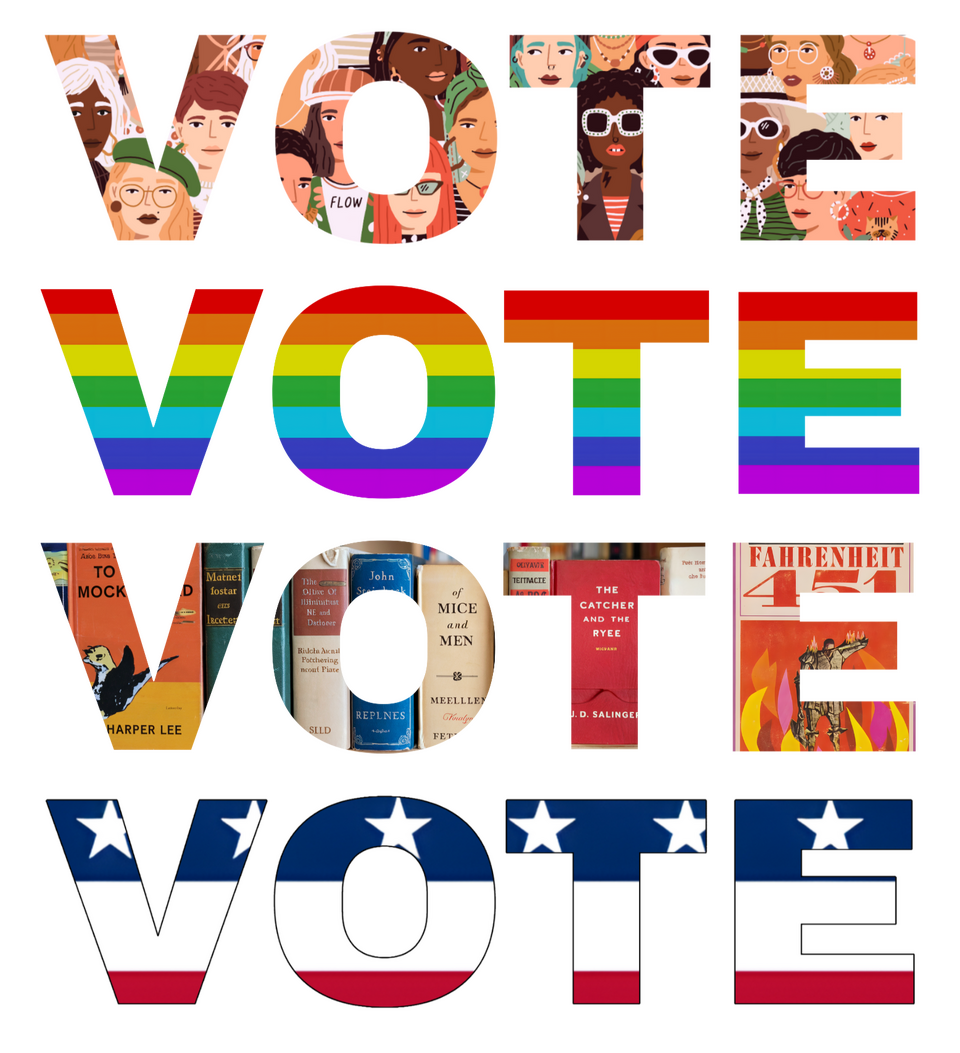
Vote with Your Whole Body
I made these for the 2024 election, but it turns out, “VOTE” is never out of season.
It’s not just about the big one every four years.
School boards. Amendments. City councils. Judges.We wear it to remember: Every vote still counts. Every body still matters.
身体是我们的,选票也是
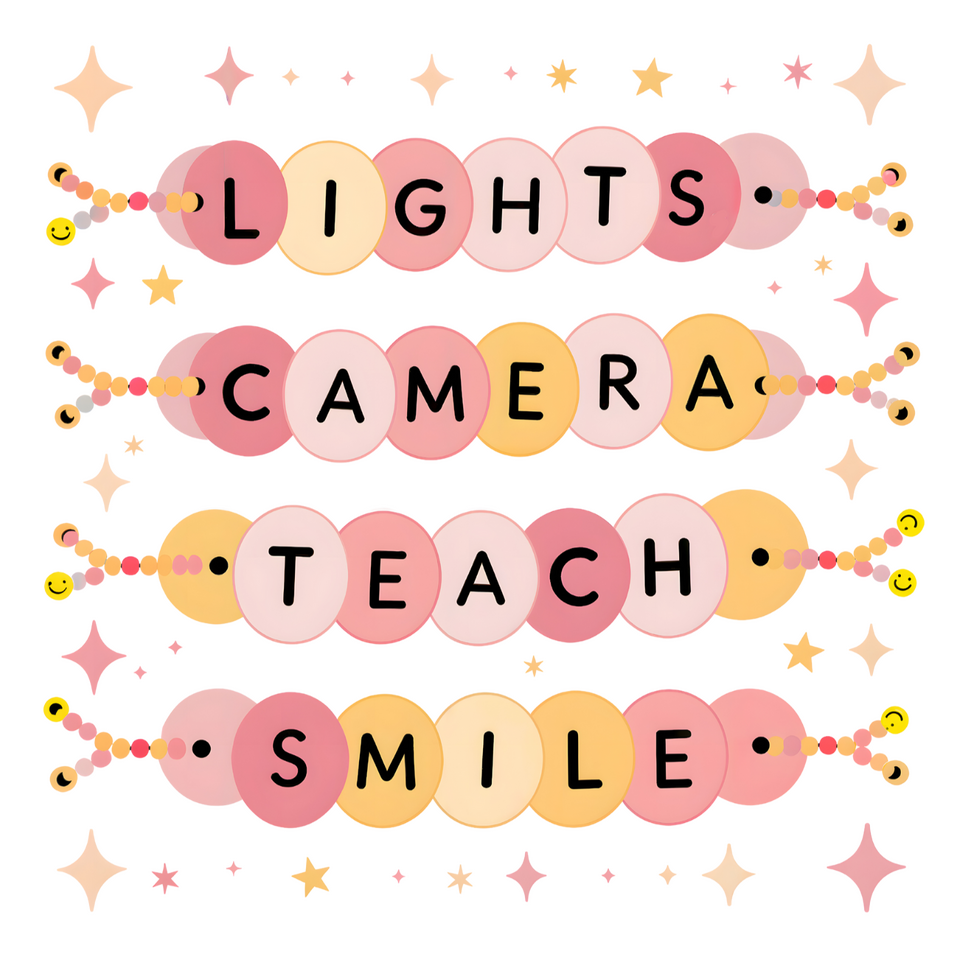

For the Swifties
I made these on a hunch — turns out, friendship bracelets do bring good things. Inspired by sparkles, classroom lights, and a certain Eras-era tradition. Whether you're a die-hard or just once danced to “Cruel Summer,”
This one’s for the lovers, the teachers, the ones who still smile through the takes.
闪闪发光,不止在舞台上
From My Hands To Yours
See something you’d love to customize? Or want to order without going through Etsy?I keep most designs in stock and can print on demand, especially for local friends or one-of-a-kind gifts.Message me and let’s make it work 🍉
有图有现货,就等你了
What's Been Happening
Some things I’ve made, witnessed, or helped shape.
From street corners to print tables, from camera to crowd.
This is where presence got printed.
Click through to explore the spaces where ideas took form.
边做边整理,这只是其中一部分
Set up, Show Up
There were windy days, hot pavement, and the occasional free sticker.
Scroll down to see where I’ve popped up.
Maybe next time, you’ll come say hi.
有来逛的朋友,记得打个招呼
Celebrate Lunar 2025
My biggest market yet—two packed days, record sales, and one lost tent.
A sudden storm ended it all, but not before I met incredible people and generous volunteers who helped me say goodbye to the canopy.
Gain and loss, soaked and smiling. Worth it.
得失之间,是风雨,也是纪念。
Quantum Leap Winery
December 8, 2024
Not the busiest day, but the best setup.
Bar counter booth + tee wall = instant presence.
吧台上的摊位
Small Business Saturday
November 30, 2024
Four hours, few sales, zero regrets.
Sunshine, slow flow, and time to breathe.
有风没浪,慢慢收摊
Art After Dark
november 22, 2024
Cold night, warm crowd, sweatshirt season.
New transfer, cold peel, kind stranger.
Not my smoothest press, but one of the sweetest moments.
冷风中,也有人温暖回应
Fashion Market
November 3, 2024
The arepas were fire. So were the girls who found my booth.
Fix-it pride, feminist sparks, and just enough sales to smile.
身边是香味,摊前是共鸣
D'space Fall Market
October 27, 2024
Indoor sounded nice—no wind, no sun.
Turns out, no shoppers either.
没风不晒,也没客流
Food Truck Rally&Market
October 18, 2024
First market, few matches, But I showed up, set up.
A slow start, still a real start.
慢开场,也是真开张
Made You Look
I’ve made designs for people I love, people I just met, and people who simply asked.
Some were gifts, some were group orders, and some just felt too fun not to print.
Designing with someone in mind makes it even more worth doing, so yes, I do customs.
欢迎来找我聊聊定制,我会认真对待每一个灵感
Across Lands, Still Aligned
A family shirt designed for the new year — red for celebration, maps for connection.
Four cities, six hearts, one design.Created with my dad, as a small gift for our family after six years apart.
We may live across lands, but we stay aligned — through stories, through shirts, through time.
六年别离,四城相望,一衣相连
Gardening Club, Growing Strong
A custom design for a high school gardening club.
Created using AI tools and illustration support, this was a small batch order from someone I met at the Celebrate Lunar market, a student volunteer group who helped me through the storm.
The price was adjusted as a THANK YOU. The design was theirs to grow.
一个设计,回赠一场风雨中的相逢
The Reel Deal
A birthday gift for a film producer friend, and my first time testing a trending glass tumbler with bamboo lid and straw.
With reels, cameras, scripts, popcorn, and screens in bloom, the design celebrates life behind the scenes.
A trial product, a personal gesture, and a step beyond tees and totes.
光影入杯,热爱成形
Power In Bloom
A birthday gift to myself.
This glass tumbler celebrates strength in softness and solidarity in bloom, featuring women of different backgrounds blossoming among delicate florals.A daily reminder of the voices I hope to carry forward. Designed in quiet defiance and rooted in what I believe.
“Girl Power”不是口号,是日常
Sparks Of Consideration
This wasn’t meant for sale. Just a thoughtful pick for a friend’s neighbor, someone hard to size, not a tote person, but hopefully a coffee person.A reminder that joy can be practical, too. Sometimes, choosing a gift means stepping beyond your usual shelf.
This mug was one such step.
杯子好配,心意正对
A Tag Of Honor
A birthday gift for my partner’s little brother — a custom luggage tag featuring Master Chief, the iconic character from his favorite game. With his name “Conan” stylized in the game’s signature font, this design was brought to life with a little help from AI (because honestly, I had no clue who Master Chief was).A small token of care, created from curiosity and love.
我不认识他,但我认识你
The Pumpkin That Waited
This pumpkin sweatshirt wasn’t even supposed to show up, it was January, long past Halloween. But during a casual chat at Celebrate Lunar Market, a lovely customer asked what other designs I had. I showed her this one on my phone, and her eyes lit up.Though I hadn’t brought it, and she lived far, I offered to hand-deliver it to her workplace the following week. When I arrived, she was already wearing the sweatshirt she’d bought from me the previous day.She didn’t just like it, she chose it. That moment made all the effort feel so worth it.
一个没带来的南瓜,成了最暖的一次遇见
The Way I Saw You
Faces I’ve known, places I’ve passed.
A glance, a gesture, a glow in the light.
Sometimes it’s a moment shared. Sometimes, just something I caught in stillness.
If you're hoping to be seen, I’d be honored to notice
在光影里看见你,拍下的也不止是你
As They Were
These portraits were made together through conversation, light, and trust.
Each frame is a quiet collaboration: a pose, a pause, a shared breath.
I tried to see not just how someone looks, but how they feel in that moment.
那一刻的他们

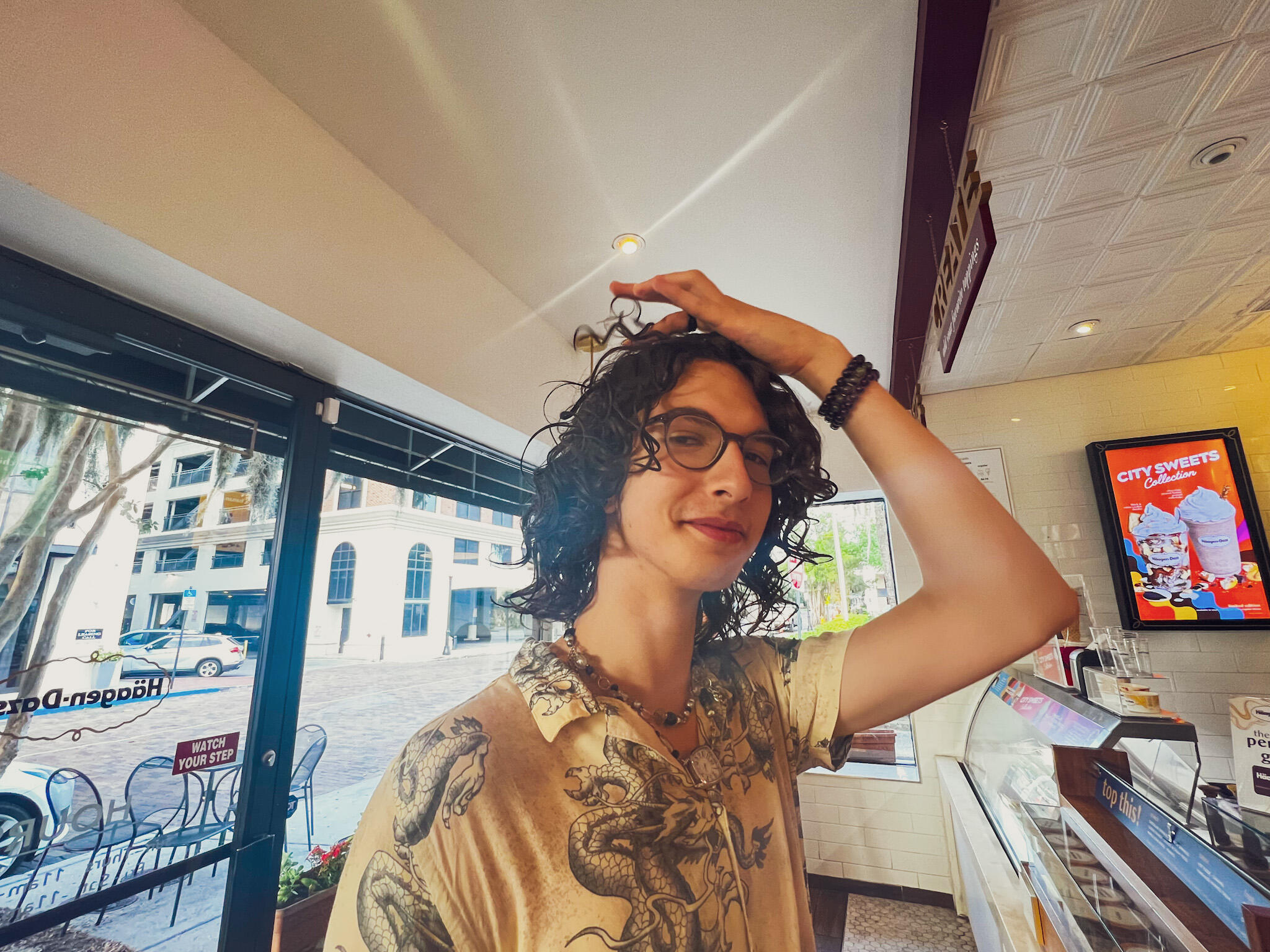




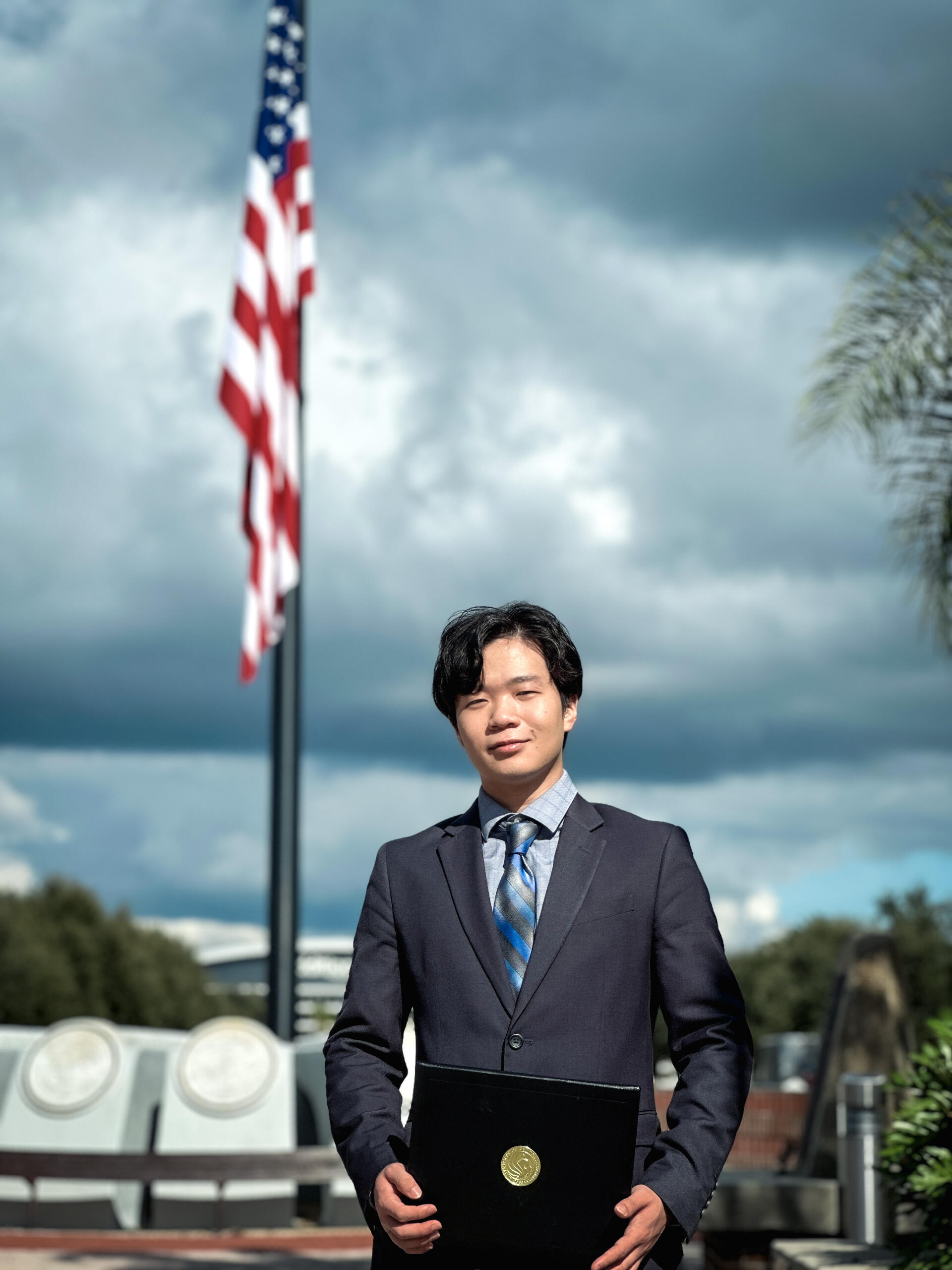
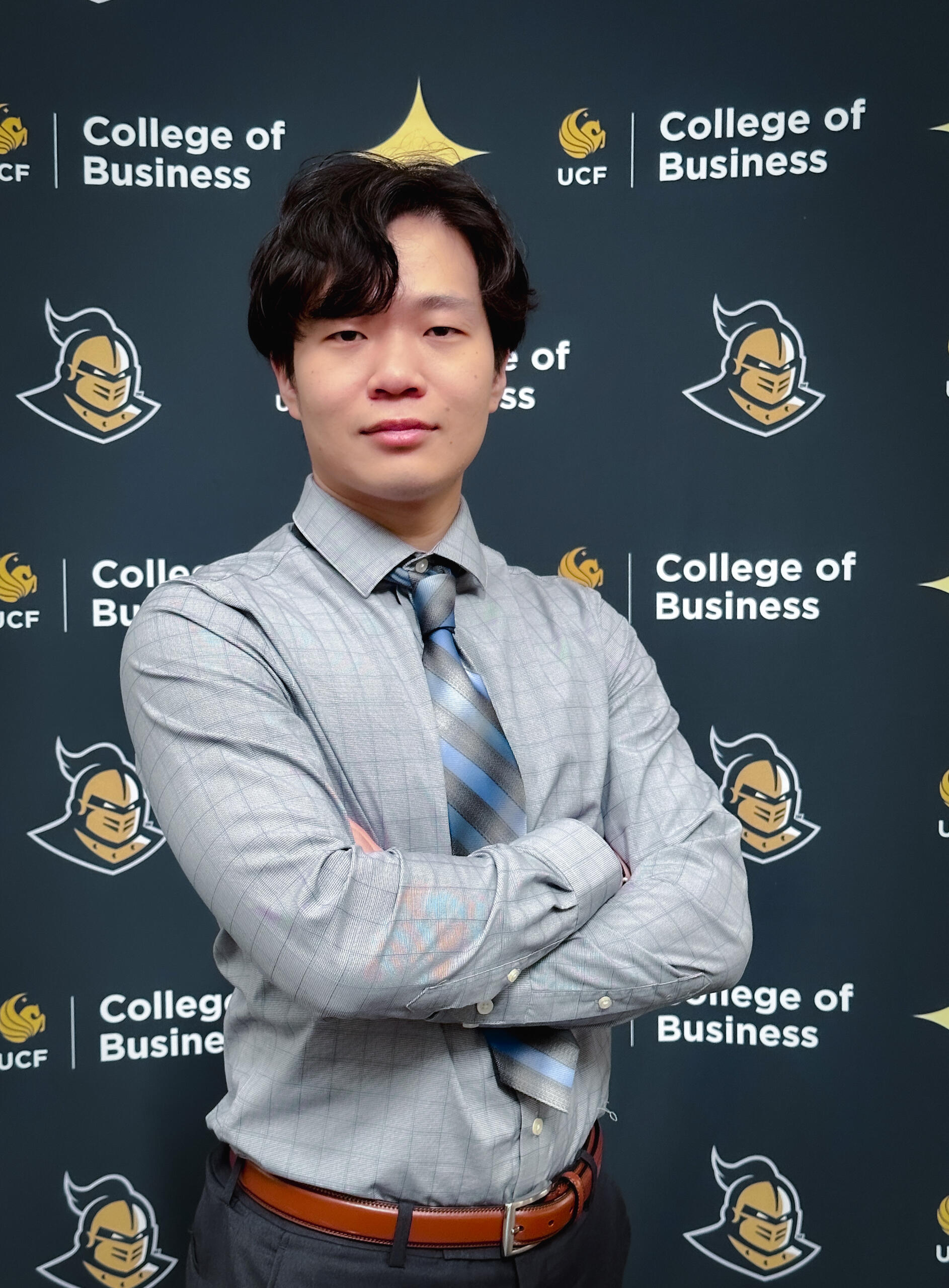


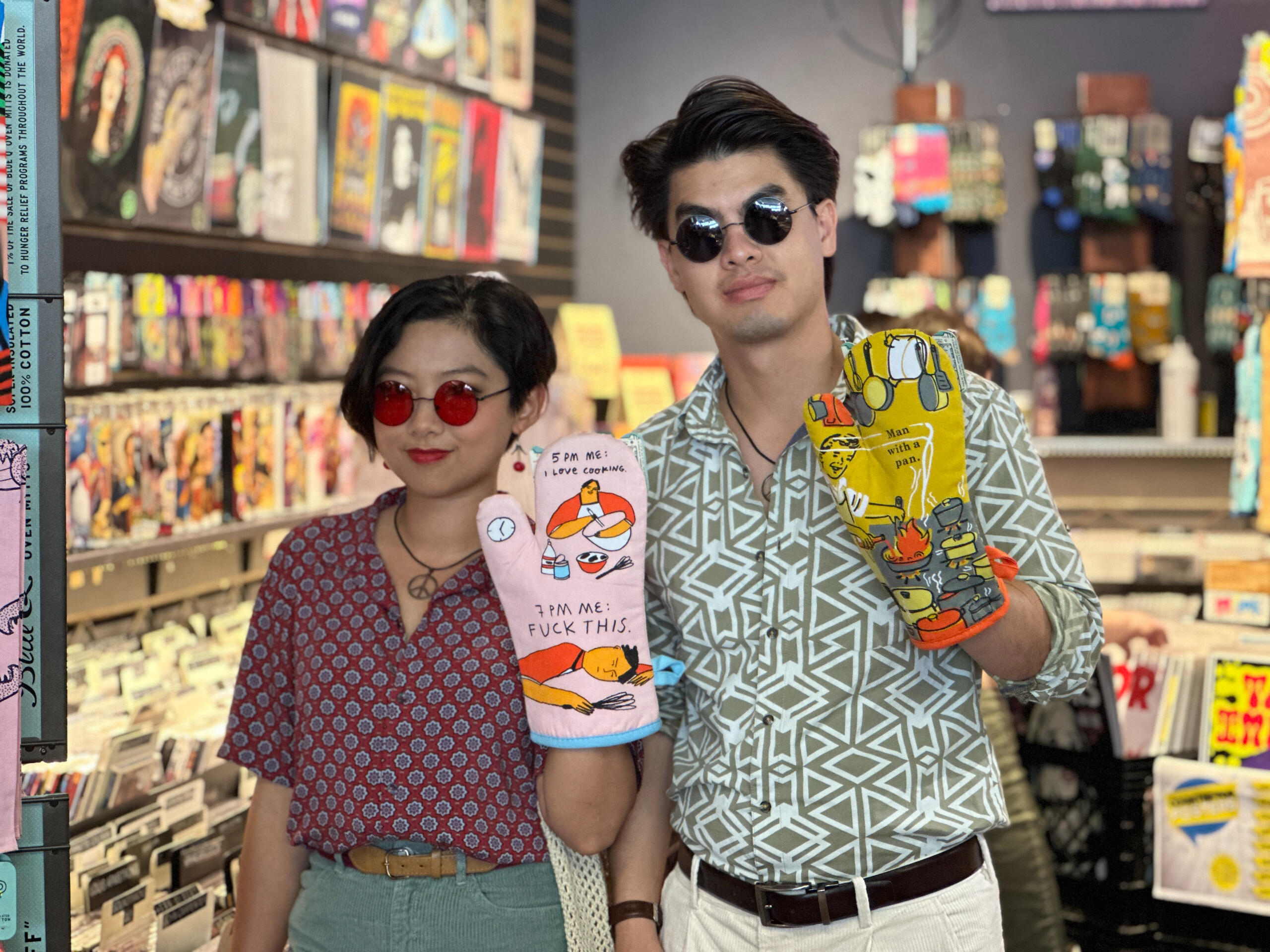

As It Was
These are fragments of stillness, places I passed, moments that lingered.
Some were far from home, some just across the street.
I never went looking for them, but sometimes the light turned and asked to be seen.
光照到了,我刚好在


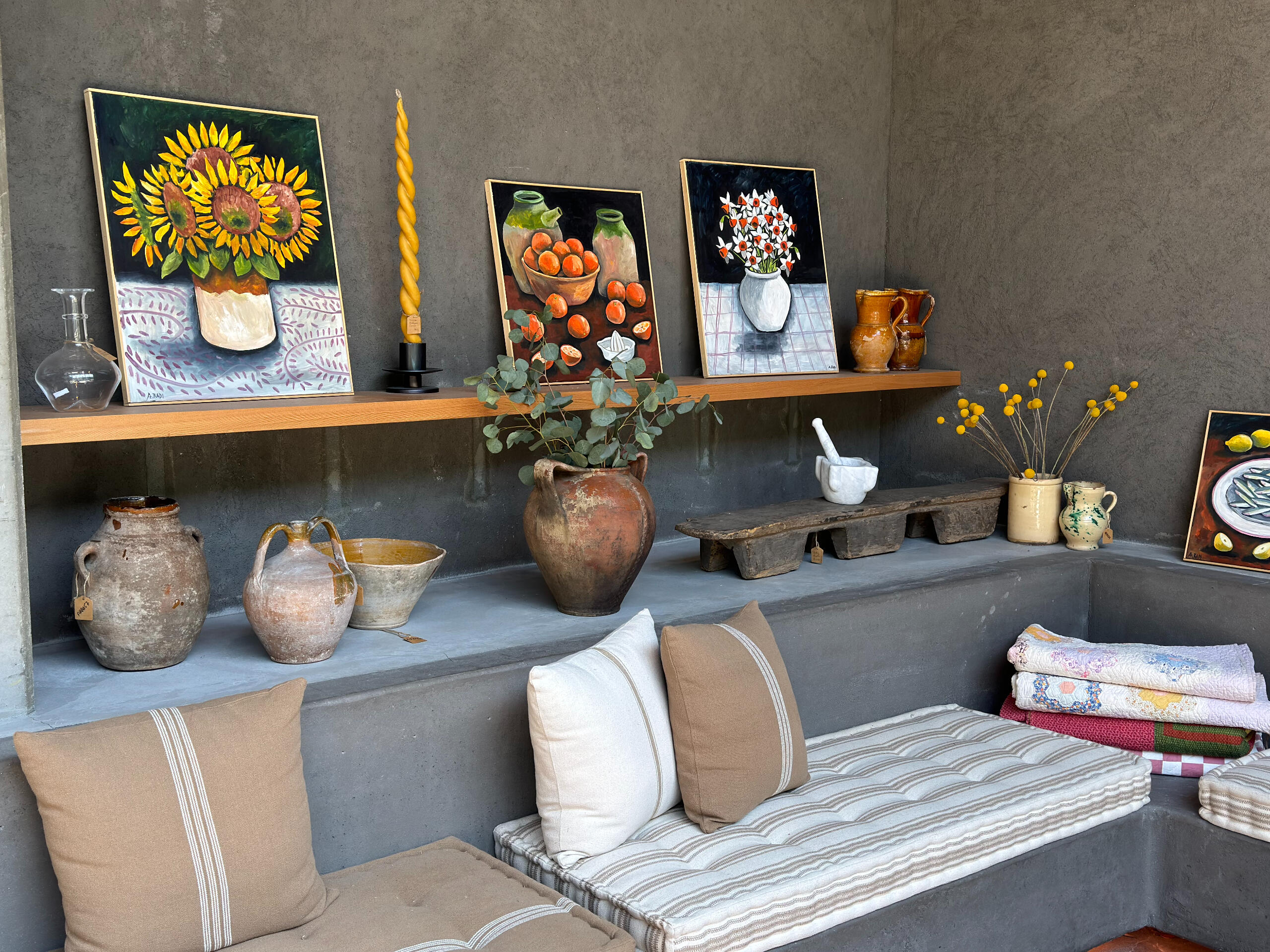
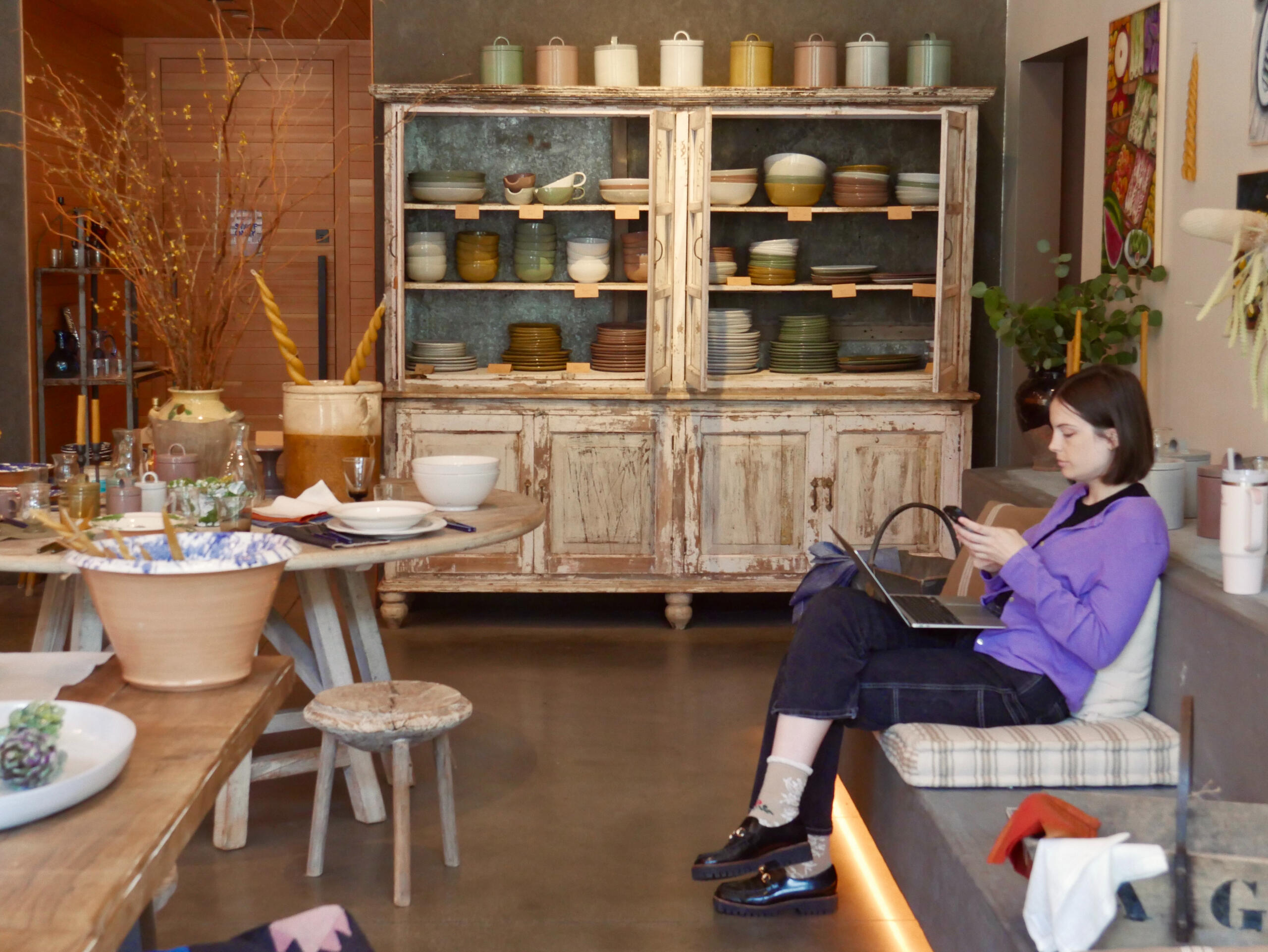







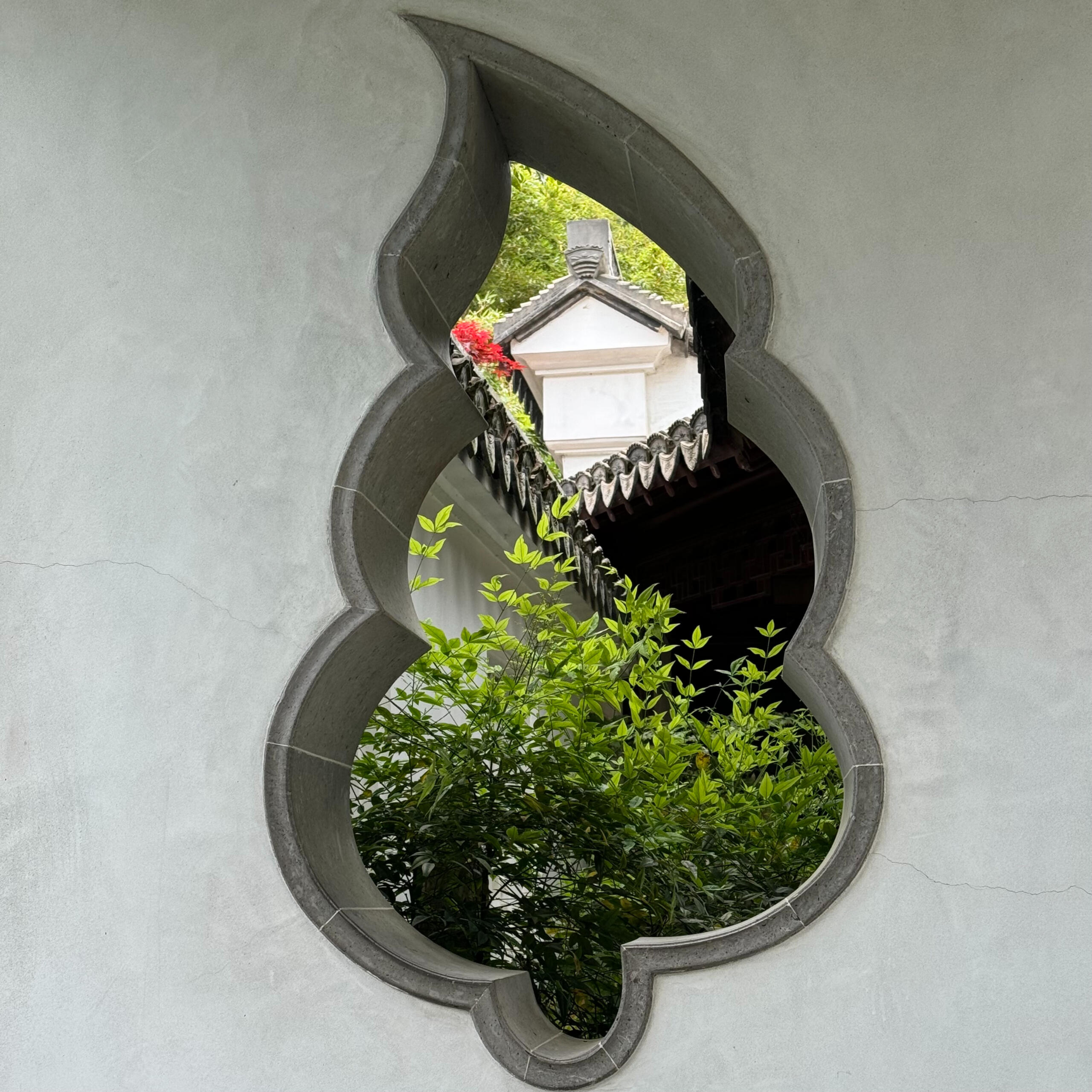
Where This Started.
After moving to the U.S., I realized how expensive it was to hire help, even for basic repairs. I’ve always been curious about how things work, and I’d try to fix simple things myself. But I’m far from being a handyman.When I began shaping my brand, I knew I needed to narrow down my focus. I asked myself: if there’s such a thing as a handyman, why not a handywoman?Turns out they exist, but are still in the minority. That gap spoke to me. Both from a commercial angle (less competition) and a feminist one (more representation).So I started here: with small designs for women who fix, build, patch, carry, wire, lift, hammer, and hustle.For those who fix things—tools, thoughts, futures—with their own hands.
日常即立场,选择即声明
Contact
Got a thought, question, or collaboration idea?
Whether it's about a shirt you saw, a story you felt, or something you'd like to build together—I'm all ears.Drop me a message below. I read everything, even if I don't always reply right away.
有事请说,有感也欢迎说
Thank you
Your message has landed—gently, and exactly where it should.
I’ll read it with care. In the meantime, thank you for showing up.
愿每一份表达,都能被听见。
Why “White Watermelon”?
I once saw a joke online: If you’re struggling to name your band, just combine the color of your underwear with your favorite fruit.
I never had a band, but the formula stuck with me.When I decided to start this project, I didn’t want to get stuck on the name. I wanted to get started.
So White Watermelon it was.Strange? Maybe. But it reminds me to begin, not perfect.
To play, not posture.
To just do the thing.
不为完美,只为开始
Presence Matters
No slogan. No script.
Just a decision to be there.
Turns out, that’s where it starts.
不在照片里,就在人群中
Anna Eskamani canvassing
-July 12th, 2025-
-July 5th, 2025-
-June 21st, 2025-
50501 June 14th
436 & Howell Branch
Orlando City Hall
50501 May